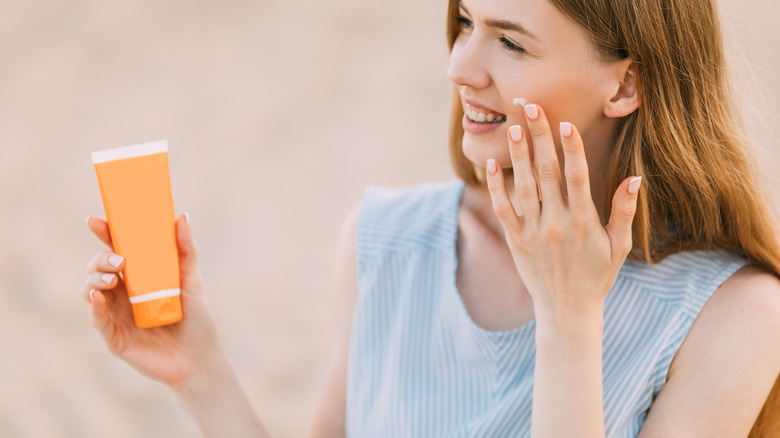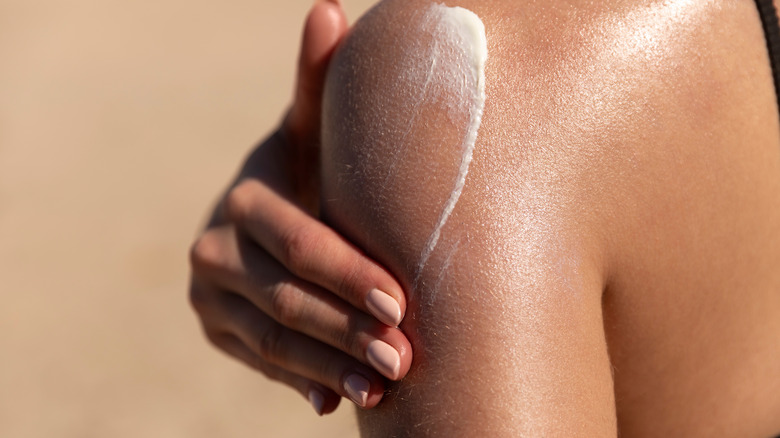The One Thing You Always Want To See On Your Sunscreen Bottle
Sunscreen is an indispensable tool when enjoying a hot summer day. Regardless of whether you tan or burn, unprotected sun exposure damages your skin over time, and is one of the most common culprits behind skin cancer. At some point in their life 20% of Americans will experience skin cancer, with yearly diagnoses of skin cancer outnumbering those of prostate, breast, colon, and lung cancer combined (per United States Environmental Protection Agency).
Unprotected sun exposure can also contribute to cosmetic issues such as premature wrinkles, sagging, and age spots (per Skin Cancer Foundation). Visible skin aging is commonly seen as inevitable, but up to 90% of it can be attributed to ultraviolet exposure, according to the United States Environmental Protection Agency (EPA).
But while sun exposure can be detrimental in these ways, being outside is also good for you, according to a 2019 study in Scientific Reports. Fortunately, you do not need to stay inside all day to avoid the harmful effects of UV rays. You can have your cake and eat it too. Wearing the right sunscreen can help prevent cancer and keep your skin looking youthful. However, it's easy to become overwhelmed with all the options and terminology. One key thing you'll want to look out for is that your sunscreen is labeled as "broad spectrum." But what does that even mean?
Buy this type of sunscreen if you want to protect against cancer and keep your skin looking young
Simply put, "broad spectrum" sunscreen provides protection against both kinds of UV rays: UVB and UVA (via Healthline). UVB rays lead to burning, and they play a greater role in the development of skin cancer, including malignant melanoma. However, UVA rays also contribute to skin cancer, and they are the primary culprit behind the acceleration of premature skin aging. They also tend to be more resilient than UVB rays; while UVB rays are often filtered by clouds or absorbed by the ozone layer, UVA rays are not. UVA rays comprise roughly 95% of UV rays that hit the ground, and they can even penetrate window glass, hitting you even if you are inside on a sunny day.
Unfortunately, some forms of sunscreen exclude protection against UVA rays, according to the American Academy of Dermatology Association. Because both UVB and UVA rays can damage the skin and contribute to skin cancer risk, it is important to get a "broad spectrum" sunscreen that protects against both. This will reduce your risk of skin cancer and help prevent premature aging of the skin.

